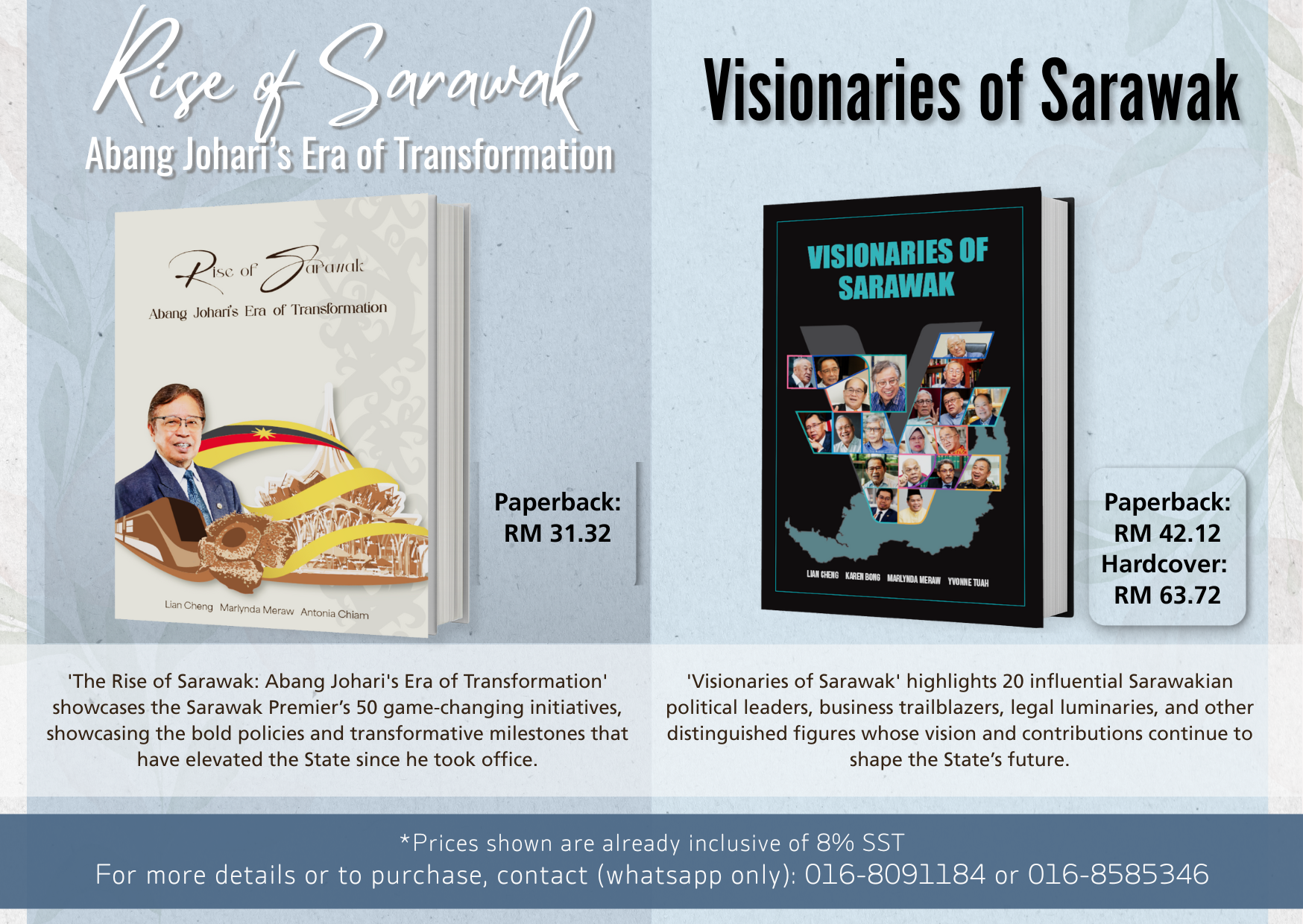
KUCHING, Nov 7: Sabah Sarawak Rights Australia New Zealand (SSRANZ) holds that there was no invasion by Sir James Brooke to acquire Sarawak, as it was granted to him by the Brunei Sultanate in 1839.
Its president Robert Pei disagreed with Kota Sentosa assemblyman’s claim that Brooke rule of Sarawak was an “invasion and colonisation” as reported in the media, in relation to a debate on the Sarawak Heritage Bill.
“On the claim that Sarawak was a Brooke colony, this is refuted by the historic fact that Sarawak was founded as an independent sovereign state in 1841 following the Brunei sultanate’s 1839 grant of the Sarawak province to James Brooke. There was no invasion.”
While he acknowledged that there was resistance to Brooke territorial expansionist policies which clashed with local interests, he stated that there was no doubt that Sarawak was an independent state from 1841 to 1941.
“The United States recognised it as such in 1850 and the UK followed in 1863 and this historic fact is still acknowledged even today.
“Sarawak was ruled as an absolute monarchy by the White Rajahs albeit administered with feudal and colonial administrative features. But this does not strictly make it a colony as different from the system which Sarawak DAP has submitted to,” said Pei in a statement today.
He said Chong had contradicted himself by acknowledging the historic importance of the Brooke judicial system when he criticised that the Kuching Old Courthouse had been “desecrated” by being commercialised instead of preserved as a heritage building.
That the Brooke judicial system was not subject to any foreign jurisdiction or control was evidence of Sarawak’s independence.
Sarawak as a sovereign state had power to make treaties with the UK (such as the 1888 Protectorate Treaty) and neighbouring countries, established diplomatic relations with other states and governed the country and managed the economy with its own government administration and judicial system, defence forces and currency.
It only became a colony for the last 78 years following Japanese occupation in 1941.
He said Sarawak was an independent state from 1841 to 1941 as it had made treaties with other states, thereby disproving the argument that it was a colony.
“However, conversely in 1963 Sarawak was still a British colony and therefore did not have the capacity to make a treaty – the Malaysia Agreement (MA63) with the UK or Malaya. MA63 was void from the beginning and not binding. Malaysia stands as a de facto federation and its legitimacy is in doubt,” he said.
Pei said many may not be aware that there is a hidden reason in denying the historic fact that Sarawak was an independent state.
“This is to avoid focusing attention on one of many legal grounds which invalidates the MA63 as a treaty. MA63 was made in breach of international law and UN General Assembly Resolution 1514 evidenced by the United Kingdom’s 1963 breach of its 1946 undertaking to restore Sarawak independence.
“Towards the end of 1945 two eminent British Queens counsels gave a joint legal opinion confirming that Sarawak was an independent sovereign state and that it would be illegal for the UK to annex Sarawak.
“This opinion was given to Anthony Brooke who led the anti-Cession movement to defend Sarawak independence and opposed the British plan to annex Sarawak as a crown colony in 1946,” said Pei.
He said Sarawakians were twice denied even a referendum by the UK to choose on the Malaysia issue. The UK used the Cobbold Commission of enquiry in 1962 and then the UN “assessment of the people’s wishes” on the Malaysia Question in 1963 to legitimise the federation plan.
“Neither were a proper way to obtain the people’s wishes or consent on the vital issue of their destiny, which should only be freely expressed in a referendum,” he claimed.
Nevertheless, this principle of freedom to “secede” for self-determination or independence was stated by British government officials themselves.
Lord Lansdowne IGC Chairman had stated in response to Sarawak demands for a sunset clause in the “reconstituted” Malayan federal constitution, that any state voluntarily entering into a federation “has the intrinsic right to secede any time”.
He said, on May 9, 1946 the British government in an attempt to deflect the Sarawak anti-Cession movement’s demands for Sarawak independence gave a public undertaking that in annexing Sarawak it would not to include Sarawak in the Malayan Union being proposed after World War II (formed in 1946) and that Sarawak independence would be restored under the 9 Cardinal Principles of the 1941 Sarawak Constitution.
“This solemn undertaking is legally binding and one of the many weak links in the creation of Malaysia which Sarawak nationalists are seeking to break by demanding the restoration of Sarawak independence.
“The failure to keep its undertaking exposes the UK’s utter disregard for the Sarawak people’s right to self-determination which make its Malaysia proposal even more wrongful.
The Malayan narrative is therefore to steer focus away from Sarawak’s former independent status avoid the issue being raised as a challenge on whether MA63 was lawfully made, said Pei.
Meanwhile, Pei also questioned why Chong refused to recognise Sarawak’s identity as an independent nation.
“Why was the MP (Chong who is Stampin MP) denying that the Brookes had created Sarawak’s identity as an independent country and nation?
“This was a stark difference from SUPP (Sarawak United Peoples’ Party) YB Lo Khere Chiang’s call to Prime Minister Mahathir to hold a referendum on Sarawak independence and that Sarawak was practically a colony of Peninsular Malaysia which showed a disregard for the wishes and intent of the spirit of the Malaysia Agreement 1963 (MA63).
“The two different approaches shows that a Malayan party will fight for Malayan interests while a Sarawak party will defend Sarawak interests,” said Pei. — DayakDaily








